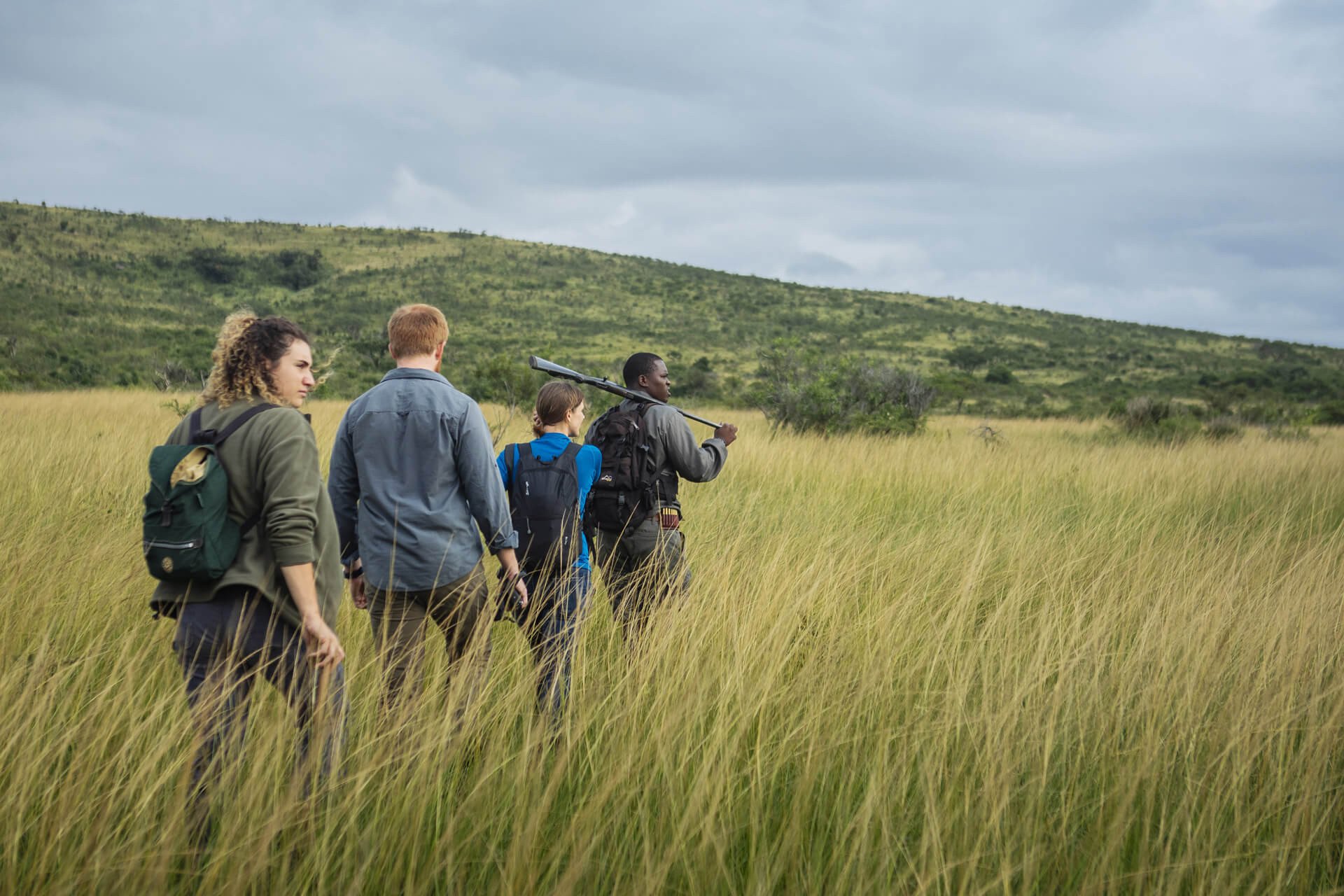blogFood Safari
Posted in:The Lodges
Posted on:November 27, 2014
Clear the mind, nourish the body, soothe the soul:
A review by Sue Derwent:
For me, the difference between a great game safari and a mediocre one is not necessarily whether you see plenty of game and tick the big five off your list. It’s also not entirely about good service and comfortable accommodation at a quality lodge, although that, of course, is always important. What I really like is good food, especially on holiday. And considering how often one ends up eating when staying at lodges, I would argue that when looking for a good holiday experience, one should also be looking out for a good chef to go with it.
It may sound somewhat odd to some, but think about this. In terms of food, most game safaris operate to much the same formula, mainly because its practical and it works well. Before setting off on your early morning game drive, at sunrise, guests generally gather at the lodge where muffins or rusks and hot tea or coffee is served while waiting for others to arrive. At some point during the actual drive, you stop at a waterhole or fabulous view site where, once again, you have a snack of some sort with coffee or hot chocolate – which is something you always look forward to. You return to the lodge after your morning’s activities just in time for a breakfast or brunch that most likely includes fruit, yogurt and cereals, a choice of a hot English breakfast or a continental breakfast with croissants, pastries, cold meats and cheeses followed by more coffee. Any place worth their salt will have an all-day tea and coffee station with yummy biscuits. Lunch is usually a three-course affair. Following your afternoon nap, at the very least there’s high tea with a fresh cake or biscuits, and then there’s the evening game drive with sundowners and snacks. Finally, on your return from the game drive, there will be a slap up three or four course dinner accompanied by wine in the boma around the fire. That’s a lot of eating, so surely it makes sense that you would want a good chef!
Enter Carl Möller, full time chef at Thonga Beach Lodge and executive training chef for the Isibindi Africa Lodges group, which consists of five unique South African lodges situated in some fascinating environments, each with its own character. 29-year old Carl is something of a health nut, which for a chef, at first glance, may, but really shouldn’t, seem incongruent. He loves the great outdoors, especially cycling and water sports. He’s an enthusiastic fisherman who enjoys both fresh water fly-fishing and salt-water angling and he’s passionate about fresh, seasonal, healthy food. He’s unusually slim for a person who’s around food all day – and even though he cooks it like a dream, he himself is not a big eater of red meat.
A peek into his pantry, cold room and kitchen at Thonga Beach Lodge shows shelves filled with things such as nuts, chickpeas, couscous and plenty of fresh seasonal fruit and veggies. “While I look after all the lodges in the group, menu planning is a challenge because in most cases, by the nature of our business and environment, we are generally quite remote. So I try to plan menus that suit each particular environment. For instance at Thonga, because it is a beach lodge and in Maputaland situated in the iSimangaliso Wetland Park world heritage site on the east coast, we have a warm sub-tropical climate, so I try to keep meals light and fresh with plenty of healthy, but nutritious and filling salads. If I am making a curry, it will be chicken and prawn, rather than a heavy mutton or beef. Fillets will often be served cold and there will always be a variety of hot and cold vegetables. I try to consider that guests will be in and out of the water, resting around the pool and that the weather is more often than not, pretty warm, and so one doesn’t want to feel heavy and full.”
That being said, we made absolutely sure we were hanging around the lodge at about four every afternoon so that we didn’t miss the mind-bogglingly awesome cakes Carl produced for high tea!
Being mindful about food and freshness, Carl buys locally as much as possible and, wherever appropriate, tries to support local village farmers who are often the lodge’s closest neighbours. Either way, whatever Isibindi is doing with their food, it works well – and the proof, as they say, is in the pudding. And the salads. And the soups. And even the cheese board and coffee.





